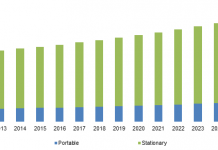part 56; 42 U.S.C. Valerie DeBenedette has over 30 years' experience writing about health and medicine. Persons with a positive SARS-CoV-2 NAAT or antigen test result were interviewed by a public health or clinic staff member after notification to YKHC, and at the time of a follow-up antigen test, if performed after the initial interview. Consider testing before contact with someone at high risk for severe COVID-19, especially if you are in an area with a medium or high COVID-19 Community Level. No potential conflicts of interest were disclosed. However, if you want to stop masking before day 10, you may decide to take an antigen test. Immunocompromised people should isolate for at least 10 days. ANSWER: If you have symptoms of COVID-19, take an at-home antigen test and it is positive, you likely have COVID-19 and should isolate at home according to CDC guidelines. 2023 Dotdash Media, Inc. All rights reserved, Verywell Health uses only high-quality sources, including peer-reviewed studies, to support the facts within our articles. Performance characteristics of the Abbott BinaxNOW SARS-CoV-2 antigen test in comparison to real-time reverse transcriptase PCR and viral culture in community testing sites during November 2020. If you test too early, you may be more likely to get an inaccurate result. Despite being given Emergency Use Authorization (EUA) by the U.S. Food and Drug Administration (FDA) in the early part of the pandemic, COVID antibody tests are not used in the same way today. Much of this has to do with the type of COVID-19 test used since some tests can detect the virus in your body longer than others. Cookies used to track the effectiveness of CDC public health campaigns through clickthrough data. You can find out more about our use, change your default settings, and withdraw your consent at any time with effect for the future by visiting Cookies Settings, which can also be found in the footer of the site. ). Cookies collect information about your preferences and your devices and are used to make the site work as you expect it to, to understand how you interact with the site, and to show advertisements that are targeted to your interests. How Long After Having COVID-19 Are You Contagious? Many Americans have wrestled with this dilemma at some point during the pandemic, yet it still seems to come up again and again: When can you stop isolating after a COVID-19 infection? "The best thing we have are these rapid antigen tests.". A positive test result for coronavirus (COVID-19) means it's very likely you had COVID-19 when the test was done. DOI: http://dx.doi.org/10.15585/mmwr.mm7108a3external icon. Overlapping symptoms make it a challenge to know when to seek medical care. Ending isolation and precautions for people with COVID-19: interim guidance, Summary of guidance for minimizing the impact of COVID-19 on individual persons, communities, and health care systems - United States, August 2022, Clinical guidance for recovered/previously positive COVID-19 patients, Diagnostics for COVID-19: moving from pandemic response to control, Interim guidance for SARS-CoV-2 testing in non-healthcare workplaces, What you should know about COVID-19 and the ADA, the Rehabilitation Act, and other EEO laws, A clinical case definition of post COVID-19 condition by a Delphi consensus, 6 October 2021, Post-acute sequelae of SARS-CoV-2 infection among adults aged 18 years - Long Beach, California, April 1-December 10, 2020, Case report: change of dominant strain during dual SARS-CoV-2 infection. ANSWER:You may need to have a negative COVID-19 test result, either by a PCR or at-home antigen test, before you can return to work or school, depending on specific requirements for the organization and where you live. The antigen test may have missed an early infection. QUESTION: How long do I need to stay in isolation if I test positive for COVID-19 using an at-home antigen test? If you receive a positive COVID test result, CDC guidance states that you should stay home for at least five days and isolate from others in your residence. endorsement of these organizations or their programs by CDC or the U.S. MMWR Morb Mortal Wkly Rep. 2022;71(33):1057-1064. doi:10.15585/mmwr.mm7133e1. 2014;26(13):811828. MMWR: Minimizing the impact of COVID-19 on Individual persons, Communities, and Health Care Systems. You will need two negative antigen test results in a row, 48 hours apart, to stop masking before day 10. As Dr. Dowdy explained, their "immune system is not getting rid of the virus" as effectively as it shouldwhich would also result in testing positive for COVID-19 for a longer period of time than someone who doesn't have a compromised immune system. The proportion of positive antigen test results declined with the number of days since an initial positive test (p<0.001), and, among persons with symptomatic infections, since symptom onset (p<0.001) (Figure). "If you are thinking about going to the nursing home to visit your grandmother, this is not the time to do it," she says. mmwrq@cdc.gov. According to the CDC, the incubation period for COVID is between two and 14 days, though the newest guidance from the agency suggests a. About 25% still had viable virus particles on day 8 or later. However, the CDC advises against policies that require employees to have a negative COVID result before they can return to work. https://www.medrxiv.org/content/10.1101/2022.01.10.22269010v2external icon. Science 2021;373:eabi5273. Scientific evidence and studies behind specific COVID-19 guidance and recommendations Follow-up antigen testing was performed by YKHC staff members at a local health facility using the BinaxNOW antigen test; results of the first follow-up antigen test were recorded in the electronic health record. They suggest . It all depends on the type of test and your results. Key Takeaways If you get COVID-19, you may test positive for several weeks after your infection clears. Antigen tests produce results quickly (within approximately 15-30 minutes), and most can be used at the point-of-care. If you test positive for COVID-19 while you are traveling, you will need to follow the guidelines for isolation, testing, and treatment where you are. With a nucleic acid amplification test (like PCR), your results may be positive for up to 90 days. A preprint study of close to 100 vaccinated college students at Boston University suggests that a majority were no longer infectious after five days. A positive test generally correlates with the presence of infectious virus. Still followed all precautions such as mask-wearing, hand-washing, distancing where possible. These cookies perform functions like remembering presentation options or choices and, in some cases, delivery of web content that based on self-identified area of interests. Influenza (Flu) and COVID-19 are both contagious respiratory illnesses, but they are caused by different viruses. Do You Need to Retest After a Positive COVID-19 Result? Some research has aligned more closely with the CDC isolation guidance, which assumes most people will no longer be infectious after five days. Although minute amounts of the virus may be detected, they may not be at levels capable of establishing an infection. The CDC says to continue masking. Sect. "With two sequential negative tests 48 hours apart, you may remove your mask sooner than day 10," the guidance states, adding that if your antigen test results are positive, "you may still be . If you get COVID-19, take the necessary precautions, which include isolating and wearing a mask when around others. Massimiliano Finzi/Getty Images There are different tests used to detect COVID-19. If you are getting ready to travel, make sure to check your destination's entry requirements, as they can vary from country to country. They help us to know which pages are the most and least popular and see how visitors move around the site. How Long Does COVID-19 Stay In Your Body? Persons were recommended to isolate for 10 days but could end isolation after 59 days if the follow-up antigen test was negative; all persons were advised to wear a well-fitting mask around others and to avoid close contact with persons at elevated risk for severe COVID-19, until the end of the 10-day period. "If you have enough virus in your system to be turning one of these tests positive, that means your body probably hasn't yet fully cleared the infection," says Hay. Assumed I'd eaten something bad as a few . NOTE: You also should check with your employer, school district or public health department for exact isolation guidelines for you and/or your family if you test positive for COVID-19, as those guidelines may differ. For example, one study analyzing data from a testing site in San Francisco during the January omicron surge suggests that many people were still testing positive after five days. But knowing when to stop isolating and resume your normal activities isn't always so clear-cut. Clinical guidance for recovered/previously positive COVID-19 patients. If you have COVID-19 symptoms and test positive on an at-home test, you have COVID-19. Sect 3501 et seq. But if you have symptoms and you test negative, you should not rule out COVID-19 just yet. The proportion of positive follow-up antigen test results was also lower after previous SARS-CoV-2 infection or vaccination and was lowest among vaccinated persons with a previous infection. These tests, however, have different sensitivities. But they can also detect the presence of COVID-19 well past the point of when its contagious. Information collected included age, sex, whether the person was of the American Indian or Alaska Native race, and whether any symptoms were reported during follow-up. Centers for Disease Control and Prevention. All authors have completed and submitted the International Committee of Medical Journal Editors form for disclosure of potential conflicts of interest. Health.com uses only high-quality sources, including peer-reviewed studies, to support the facts within our articles. Read our. But 17% had positive cultures after that, with the latest up to day 12. Excluded 21 persons with partial vaccination (14 symptomatic infections and seven asymptomatic infections). Jones TC, Biele G, Mhlemann B, et al. After a week, when he was feeling better, he came back to the office, where everyone's required to wear an N95 mask. I do not have symptoms Unexpected positive antigen test. During January 1February 9, 2022, a total of 3,502 persons with SARS-CoV-2 infection were reported to YKHC, including 3,266 (93.3%) in whom symptom onset or the initial positive test result had occurred 59 days earlier. The 7 Best At-Home COVID-19 Tests of 2023, Tested and Reviewed, Why Even a Faint Line on Your Rapid Test Still Means You're COVID-Positive, FDA Now Recommends Taking Up to 3 At-Home COVID Tests to Confirm Negative Result. Positive results on an antigen test are fairly reliable, meaning that the test is generally positive only when the COVID-19 virus is present in your specimen.
Does Ignoring Capricorn Man Work,
Venus Debilitated Degree In Virgo,
Articles H




